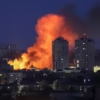The U.S. government late last year authorised the sale of 20 sniper-rifle systems and associated gear to Rio de Janeiro’s notorious police special operations force, despite objections from diplomats and human-rights officials. The move has come under intense scrutiny after a recent police raid—carried out by the same unit—left 121 individuals dead, including four officers, triggering global condemnation and calls for an investigation.
Sale Approved Amid Internal Opposition
In May 2023 the U.S. cleared a deal for 20 sniper rifles produced by a Georgia-based manufacturer for Brazil’s elite state police unit in Rio. Approval came even though a January 2024 memo from the U.S. State Department flagged that the Rio unit was “among the most notorious” Brazilian law-enforcement agencies in civilian-death cases. Many U.S. diplomats and human-rights specialists opposed the transaction from the outset.
While the rifles were shipped in 2024, a related shipment of suppressors—manufactured in Wisconsin—remained blocked by U.S. officials. Documents reviewed show that even as the deal went ahead, major concerns lingered about misuse or diversion of the weapons.
Deadly Raid Underscores the Risks
The weapons were acquired by the Rio unit just ahead of its involvement in a massive October operation, when police carried out a raid that resulted in 121 deaths—the deadliest such action in Brazil’s history. The incident has drawn UN and NGO scrutiny for possible extrajudicial killings and excessive-force allegations. The same unit reportedly accounted for over 700 civilian deaths in the prior year according to police data.
Critics argue the weapons sale may have emboldened the unit. Defenders of the operation say the force was acting to reclaim control from organised crime. Yet the U.S.’ decision to proceed with the sale despite documented concerns has provoked debate about accountability and arms-export ethics.
Political Fallout and Future Oversight
For Brazil’s government, the fallout has been political as well as diplomatic. The opposition is calling for full investigations into both the raid and the weapons procurement process, while the U.S. faces fresh questions about the standards and oversight applied to arms exports to foreign police units.
Analysts suggest the episode could trigger tighter controls on how U.S.-made firearms are transferred to policing agencies abroad—especially those with poor human-rights records. The case also highlights the perennial tension between supporting allied security forces and preventing misuse of advanced weaponry.







































